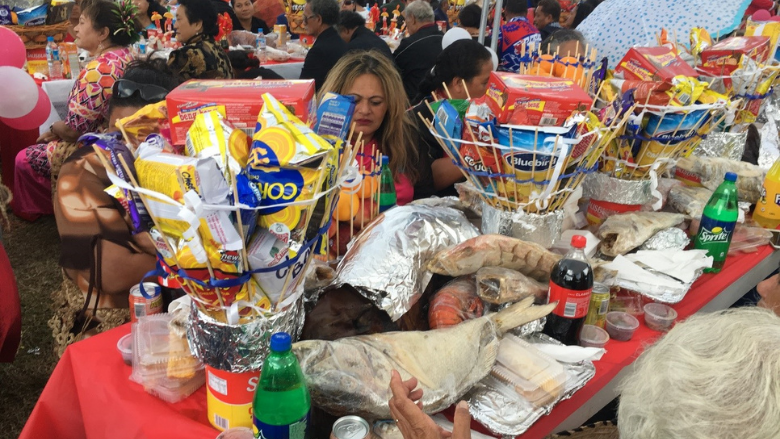Fat. Salt. Sugar. They are loved ingredients in countless meals served across the Pacific, every day. They enhance flavours and provide energy. But excess consumption is hurting Pacific islanders, their families, and their communities. High consumption of fat, salt, and sugar are major causes of non-communicable diseases (NCDs) – including heart disease, stroke, diabetes and cancer; which are affecting Pacific people at alarming rates. In fact, NCDs are the main cause of premature disability and death in the Pacific, with the region’s Leaders declaring an ‘NCD crisis’.
NCDs place a huge burden on Pacific health care systems that struggle to provide adequate services. There is also a significant economic burden with NCD-related chronic sickness and disability impacting the economies of many countries. In response, governments have been promoting policies designed to address major risk factors including unhealthy diets.
NCDs in Tonga
NCDs account for 83% of all deaths in Tonga[1], with the Tongan Government now implementing its NCD Strategy and Action Plan that aim to make healthier options like fish more available, while applying diet-related taxes to reduce the consumption of particularly unhealthy products like mutton flaps, turkey tails, and sugary drinks. Building on the findings of a World Bank report the taxes have proved successful in driving product prices higher, helping to reduce their consumption while also delivering an increase in government revenue.
Keen to build on this initiative, the Tongan Government were however challenged by a shortage of information about the nutrients; particularly the levels of fat, salt and sugar found in everyday foods, making it difficult to decide on a new range of food and drinks to target. To tackle the problem, the government sought the World Bank’s support to develop ‘nutrient profile models’ that could guide the design and implementation of a new tax policy.
“Nutrient profile models classify foods according to their nutritional composition, and provide thresholds on the unhealthy levels of fat, salt, and sugar in different food groups,” says Sutayut Osornprasop, World Bank Senior Health Specialist who co-authored the Nutrient Profile Model report. “Using the models, it’s possible to work out what which foods represent healthier options, and which are unhealthy.”


